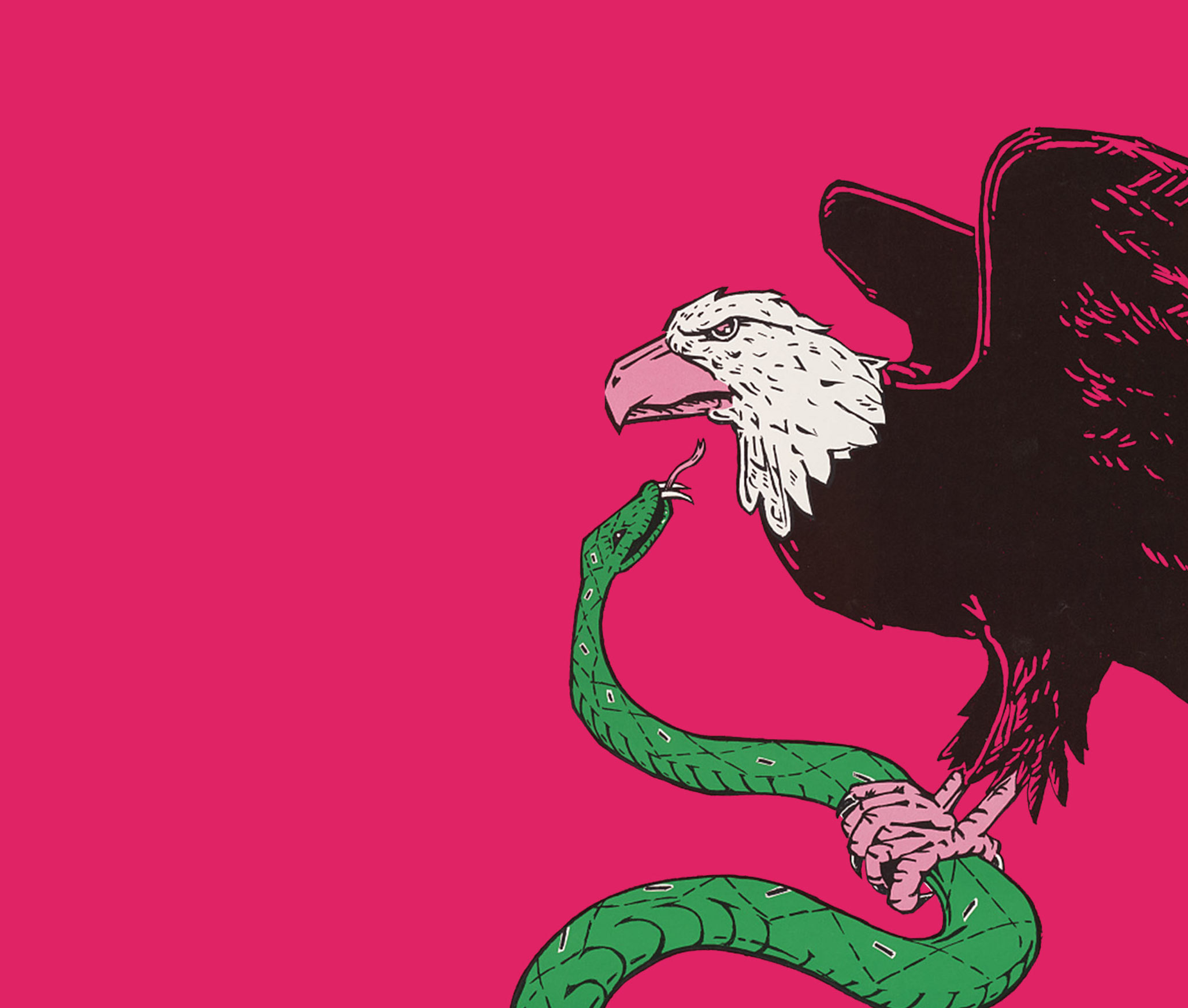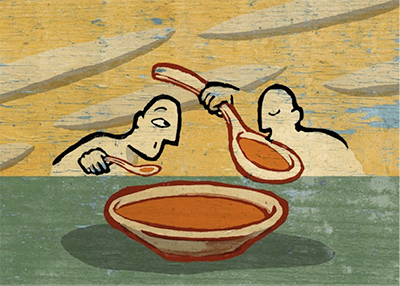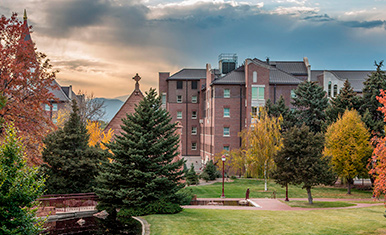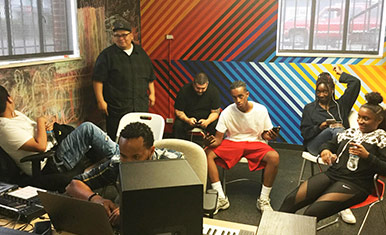Activating the Curriculum
#becauseofirise
How Can the Classroom Be a Site for Rigorous Historical Research and a Laboratory for the Future of Racial Justice?
IRISE’s foundation is in amplifying and growing the work of brilliant scholars and educators to challenge deep-rooted structural and institutional inequities, identify new and substantive solutions to racial and other social gaps, and empower students, community partners, policy makers, colleagues, and the larger public to better understand the shared and on-going struggle for justice. Two such scholars are Drs. Carlos Jimenez and Lina Reznicek-Parrado who are using the classroom to diversify the historical archive and in the process, center the voices of Latinx/e migrants whose voices, perspectives and knowledge are often ignored and unrecognized in larger policy debates that directly impact their lives. Their vision created the framework for the curricular development of IRISE’s Documenting the Past, Fostering the Future initiative.
We recently sat down with Dr. Jimenez and Dr. Reznicek-Parrado to learn more about their impactful work.
Tell us about the original oral history project that you two collaborated on?
Our project Colorado Voices in the Community (CVC) originally started with the oral history project on the heels of the pandemic. [Dr. Jimenez] witnessed the impacts of the pandemic on communities of color, and immensely on the backs of the Latinx community in Colorado. Many of them were labeled “essential workers,” and the first iteration of the project sought to capture their stories through an oral historical project. Originally funded through a course release and close collaboration with History Colorado, the project subsequently learned about CILCA’s Keystone Grant and expanded the program with the collaboration of Prof. Lina Reznicek-Parrado. Dr. Reznicek-Parrado’s collaboration helped us win the Keystone Grant to fund and prepare a cohort of 15 bilingual students in 2021-2022 to simultaneously collect oral histories and be placed at paid internship sites across Denver to use their Spanish language.
The focus here is to help fund Latinx students at DU who (1) might not seek out an internship because of the often non-paid component; (2) to create a pipeline for Latinx students to use their Spanish in a professional and community setting; and (3) to help create an archive of community voices for generations to come. The program most recently received grants from CILCA and Center for Immigration Policy and Research and has also been supported by the Center for Community Engagement to Advance Scholarship and Learning (CCESL) to fund a second year cohort for 2022-2023.
How and in what ways did it connect students to a larger Latinx/e community?
Empowering and serving the Latinx community is at the heart of the project. We started by reaching out to see if anyone would be interested in hosting a Spanish-language focused internship, and to our surprise the response from non-profits and companies around Denver was overwhelming. We had hit on a growing need for organizations to outreach to the Spanish-speaking community in Denver and DU students who wanted to use their language for the public good. Students according to their own interests are paired in a wide range of organizations, some of which include the African Chamber of Commerce, Alzheimer’s Association, Latino Community Foundation of Colorado, Habitat for Humanity, Mexican Cultural Center, The U.S. Health and Human Services, the Colorado Democratic Party, and many more.
What skills did students learn?
Students had a variety of learning outcomes, but two key ones included (1) taking their Spanish use beyond the comforts of homes and classrooms, and into public and professional spaces around Denver. Often being the sole person at the organizations interfacing and helping to communication with Spanish speaking community members. (2) additionally through workshops with History Colorado, students learned about the methods for collecting oral histories and conducted their own.
How will this project grow with the NEH Curricular Grant?
The project promises to expand the CVC project in a variety of ways. Already in terms of faculty, the collaboration has expanded to include over a dozen faculty members from across the university. The project further delves into Colorado history as students work with a team of faculty members and local historians, seek to uncover stories of how young people in the Colorado area contributed to the birth of El Movimiento, the Chicano movement of the late 1960s and 1970s.
The curricular initiative is designed to engage students, faculty, and community members in place-based learning and humanities research to understand how the activities of young people from this area played a role in the past to inform perspectives for racial justice work in the present and future. Twelve classes will be developed that will engage students in original research and in the production of original multimedia narratives. The oral history collection work of the students and faculty will contribute archival material of historical value to the Rocky Mountain West and specifically to History Colorado, which is also a partner in this effort, and the many other collaborative relationships we have established with the many partners through the internship program will also contribute to the growth of learning, collaborating, disseminating, and highlighting Latinx experiences in the state.
Can you tell us a little about the classes that will be offered and the sorts of work that students will doing?
This part is still being hashed out, but there are a range of courses from those focused on audio production, archival analysis to those focused on Latinx Colorado language, history and social movements.






